
by Ria Olivier | Sep 25, 2025 | Announcement, Jobs, Marion Island, News, Overwintering Team, Research, SANAP, Science, Southern Ocean, Stations, sub-Antarctic, Team member
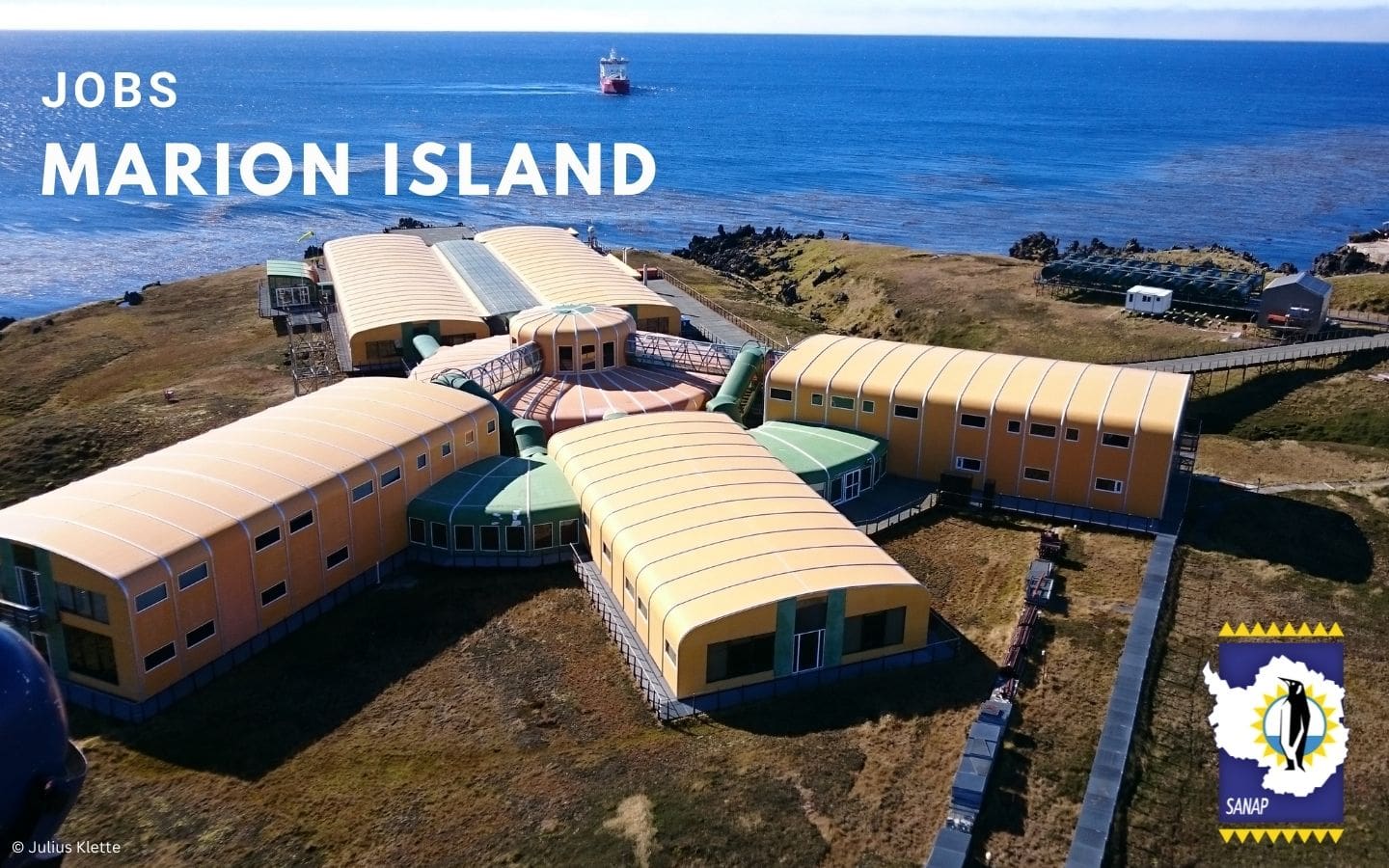
The following positions are available on the sub-Antarctic, Marion Island for the overwintering period (April 2026 to May 2027)
Environmental Officer Assistant Environmental Officer
Communications Engineer Diesel Mechanic Electrical Engineer Medical Orderly
Senior Meteorological Technician Assistant Meteorological Technician
Closing Date: 06 OCTOBER
The incumbent will execute duties at a Sub/Antarctic Base and adhere to the health, safety and environmental requirements. The successful applicant will spend a full year (April 2026 to May 2027) at Marion Island. There is no option to return to South Africa before May 2027. The ability to work and live with small groups of people is thus essential. Although the base is well-equipped with e-mail, fax and satellite telephone facilities, the applicant must be self-sufficient and self-motivated.
Click here: View all positions

by Ria Olivier | Sep 23, 2025 | Antarctica, Gough Island, Heritage Day, Important Dates, Marion Island
Heritage Day on 24 September recognises and celebrates the cultural wealth of our nation. Across South Africa, people reflect on our shared histories, diverse traditions, and the heritage that continues to shape our identity.
 Antarctic Legacy of South Africa (ALSA) collaborated with Iziko Museums of South Africa in Cape Town to highlight a special part of our heritage – our polar research history. Visitors to the museum will encounter banners dedicated to South Africa’s polar heritage.
Antarctic Legacy of South Africa (ALSA) collaborated with Iziko Museums of South Africa in Cape Town to highlight a special part of our heritage – our polar research history. Visitors to the museum will encounter banners dedicated to South Africa’s polar heritage.
 Iziko Museums in Cape Town host a permanent exhibition the Sentinels of The South – (above the display of South Africa’s first explorers:
Iziko Museums in Cape Town host a permanent exhibition the Sentinels of The South – (above the display of South Africa’s first explorers:
“The exhibition examines the history, discoveries and current role of South Africa’s Antarctic and Southern Ocean exploration. It takes visitors through the background and challenges of early Antarctic exploration, and South Africa’s contribution to it. The rich and unique biodiversity found on these islands, and the part the islands play in helping us understand some of the global issues affecting everyday South Africans, are highlighted. The exhibition also showcases South Africa’s multidisciplinary Antarctic scientific endeavours, our state-of-the-art research facilities, and our flagship research vessel, the SA Agulhas II.”
On Heritage Day visit the IZIKO museum in Cape Town to learn about South Africa’s Polar Heritage
South Africans celebrate Heritage Day by remembering the cultural traditions and histories that make up the fabric of our nation. Across the country, various events bring communities together in celebration.
Visit and Discover
On Heritage Day, we invite you to visit Iziko Museums in Cape Town and immerse yourself in South Africa’s Polar Heritage. Learn more about our explorers, scientists, and the role our country plays in global Antarctic research.
Heritage is not only about where we come from – it is also about the legacies we build for the future. By celebrating our polar research heritage, we acknowledge the contributions of South Africans past and present, ensuring that this important story remains part of our national identity.

by Ria Olivier | Sep 16, 2025 | Announcement, Antarctica, International Days
On 16 September, we join the global community in celebrating the International Day for the Preservation of the Ozone Layer, commemorating the signing of the Montreal Protocol in 1987. The ozone layer acts as Earth’s protective shield, filtering harmful ultraviolet (UV) radiation from the sun. Thanks to international cooperation and scientific research, the ozone hole is slowly healing, reminding us of the power of collective action in safeguarding our planet.
 South Africa contributes directly to this global effort through the South African National Antarctic Programme (SANAP). At SANAE IV in Antarctica, as well as on Marion and Gough Islands, SANAP scientists conduct long-term atmospheric and environmental monitoring. This includes measuring stratospheric ozone levels, UV radiation, and atmospheric interactions—critical data that help track ozone recovery and understand climate–ozone linkages.
South Africa contributes directly to this global effort through the South African National Antarctic Programme (SANAP). At SANAE IV in Antarctica, as well as on Marion and Gough Islands, SANAP scientists conduct long-term atmospheric and environmental monitoring. This includes measuring stratospheric ozone levels, UV radiation, and atmospheric interactions—critical data that help track ozone recovery and understand climate–ozone linkages.
By providing empirical observations from the Antarctic—one of the most sensitive regions for ozone depletion—SANAP’s research supports international scientific assessments and strengthens policy decisions under the Montreal Protocol. Today, as we mark Ozone Day, we celebrate the progress made and reaffirm SANAP’s commitment to advancing research that protects both the ozone layer and future generations.

by Ria Olivier | Aug 25, 2025 | Research, SANAP, South Atlantic, Southern Ocean
 Pelagic High Seas Ocean Ecoregionalisation of the Indian Subantarctic (PHOCIS) will be holding a workshop in Cape Town, South Africa, 25 – 29 August 2025. The main objectives for the Cape Town workshop will be for participants to present and discuss progress on all PHOCIS work packages, but in particular to advance WP4 on Integrated Ocean Management (this study), and WP5 on Research and Monitoring.
Pelagic High Seas Ocean Ecoregionalisation of the Indian Subantarctic (PHOCIS) will be holding a workshop in Cape Town, South Africa, 25 – 29 August 2025. The main objectives for the Cape Town workshop will be for participants to present and discuss progress on all PHOCIS work packages, but in particular to advance WP4 on Integrated Ocean Management (this study), and WP5 on Research and Monitoring.
 The PHOCIS project, “Pelagic High Seas Ocean Ecoregionalisation of the Indian Subantarctic,” is
The PHOCIS project, “Pelagic High Seas Ocean Ecoregionalisation of the Indian Subantarctic,” is
a scientific initiative focused on dividing the open ocean waters around the Indian subantarctic
region into distinct ecological zones based on their unique marine life and environmental
conditions, with the primary goal of identifying and protecting critical conservation areas within
the subantarctic high seas. The integrated ocean management process will encompass the high
seas within 20°E to 150°E and from 40°S to 60°S. Most of the western area falls within the
CCAMLR boundary whereas the eastern area is outside the CCAMLR boundary.
The main objectives for the Cape Town workshop will be for participants to present and discuss
progress on all PHOCIS work packages, but in particular to advance WP4 on Integrated Ocean
Management, and WP5 on Research and Monitoring. Reports generated will be presented to
CCAMLR via the Scientific Committee and its Working Groups.
PHOCIS is structured into 6 WPs (Work Packages), which are further subdivided into sub-WPs:
WP1 Pelagic ecoregionalisation
WP1.1 Geography
WP1.2 Pelagic oceanographic regions
WP1.3 Plankton and pelagic fish spatial distributions
WP1.4 Seabird and marine mammal distributions
WP1.5 Pelagic ecoregionalisation synthesis
WP2 Connectivity between ecoregions
WP3 Historical and forecasting trends
WP4 Integrated Ocean Management
WP4.1 List of conservation objectives
WP4.2 Human impacts
WP4.3 Systematic Conservation Planning
WP4.4 Legal framework
WP5 Research and Monitoring
WP6 Education and knowledge dissemination
Since its inception meeting in 2019 in Cape Town, PHOCIS has been holding workshops on an
annual basis, either online, in-person, or hybrid.
For more info, contact:
Azwianewi Makhado (amakhado@dffe.gov.za) or
Philippe Koubbi (philippe.koubbi@sorbonne-universite.fr)

by Ria Olivier | Aug 12, 2025 | Announcement, Ecology, Environment, Invasion Biology, Jobs, Marion Island, Mice Eradication, Microbiology, Research
 Postdoctoral Fellowship: Understanding Mouse Impacts on Sub-Antarctic Marion Island at Department of Plant and Soil Sciences, University of Pretoria. (image: Otto Whitehead)
Postdoctoral Fellowship: Understanding Mouse Impacts on Sub-Antarctic Marion Island at Department of Plant and Soil Sciences, University of Pretoria. (image: Otto Whitehead)
An exciting postdoctoral fellowship is offered on our South African National Antarctic Programme project “Towards a comprehensive understanding of impacts of the invasive house mouse on the terrestrial biodiversity of Marion Island”. Sub-Antarctic Marion Island is one of the most isolated landmasses globally. The house mouse invaded the island in the early 1800s, and its impacts are manifold, and intensifying under climate change. This project aims to fill gaps in understanding mouse impacts on the island, with the purpose of informing the planned mouse eradication. This position will provide exciting opportunities to work on excellent long-term and/or spatially well-sampled datasets and inform island management.
Full Details and Advertisement
Additionally, opportunities to collaborate locally and internationally exist within this project. We are looking for a candidate with expertise in one or several of the following, or related fields: community ecology, isotope ecology, entomology, botany, trait ecology; or with an ability to learn the necessary skills. Their primary responsibility will be conducting and leading research into one or several of these themes. Opportunities for student supervision and teaching also exist.
Closing Date : 29 August 2025
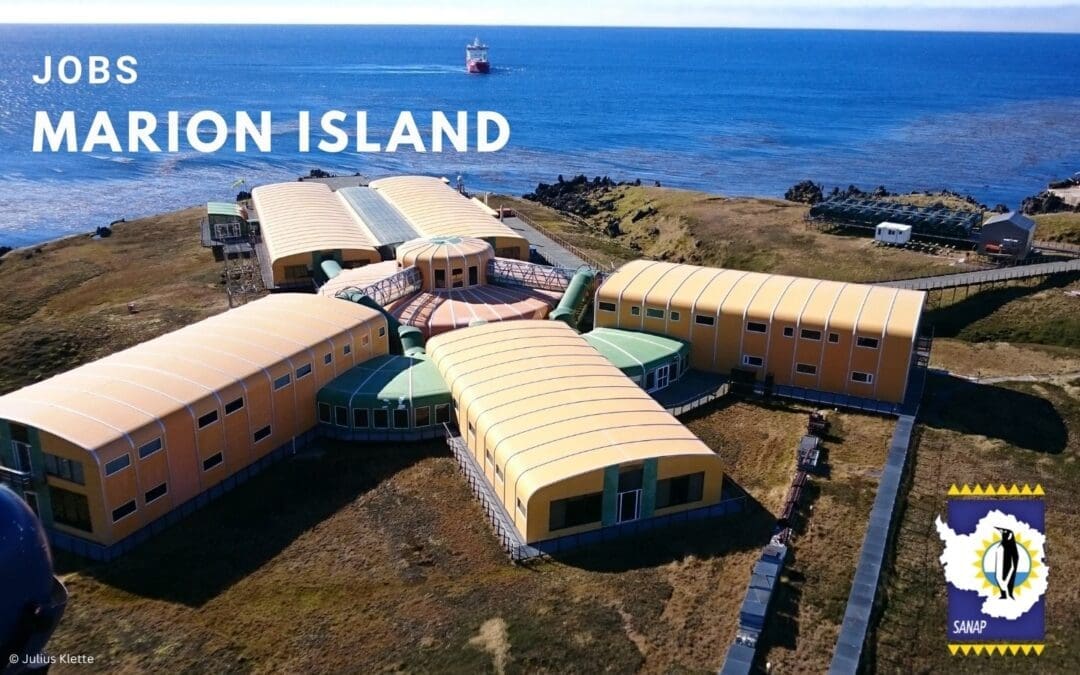


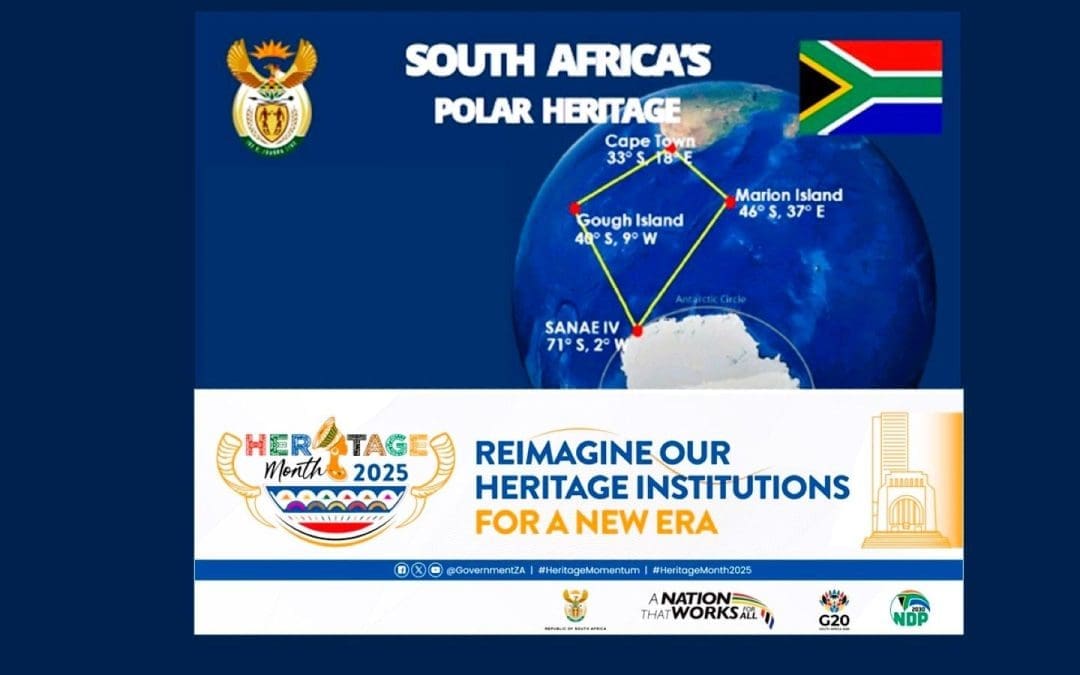
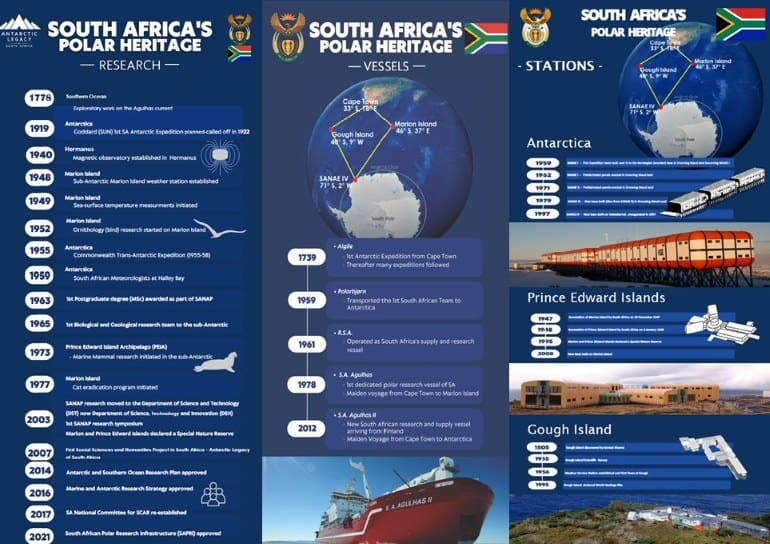 Antarctic Legacy of South Africa (ALSA) collaborated with Iziko Museums of South Africa in Cape Town to highlight a special part of our heritage – our polar research history. Visitors to the museum will encounter banners dedicated to South Africa’s polar heritage.
Antarctic Legacy of South Africa (ALSA) collaborated with Iziko Museums of South Africa in Cape Town to highlight a special part of our heritage – our polar research history. Visitors to the museum will encounter banners dedicated to South Africa’s polar heritage.
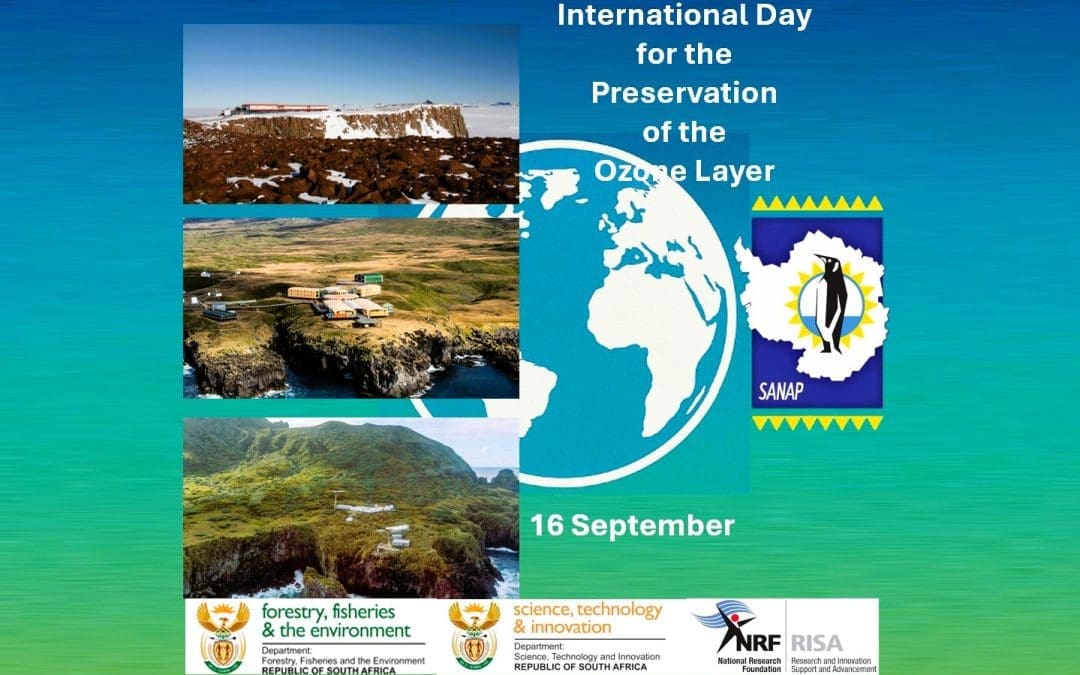
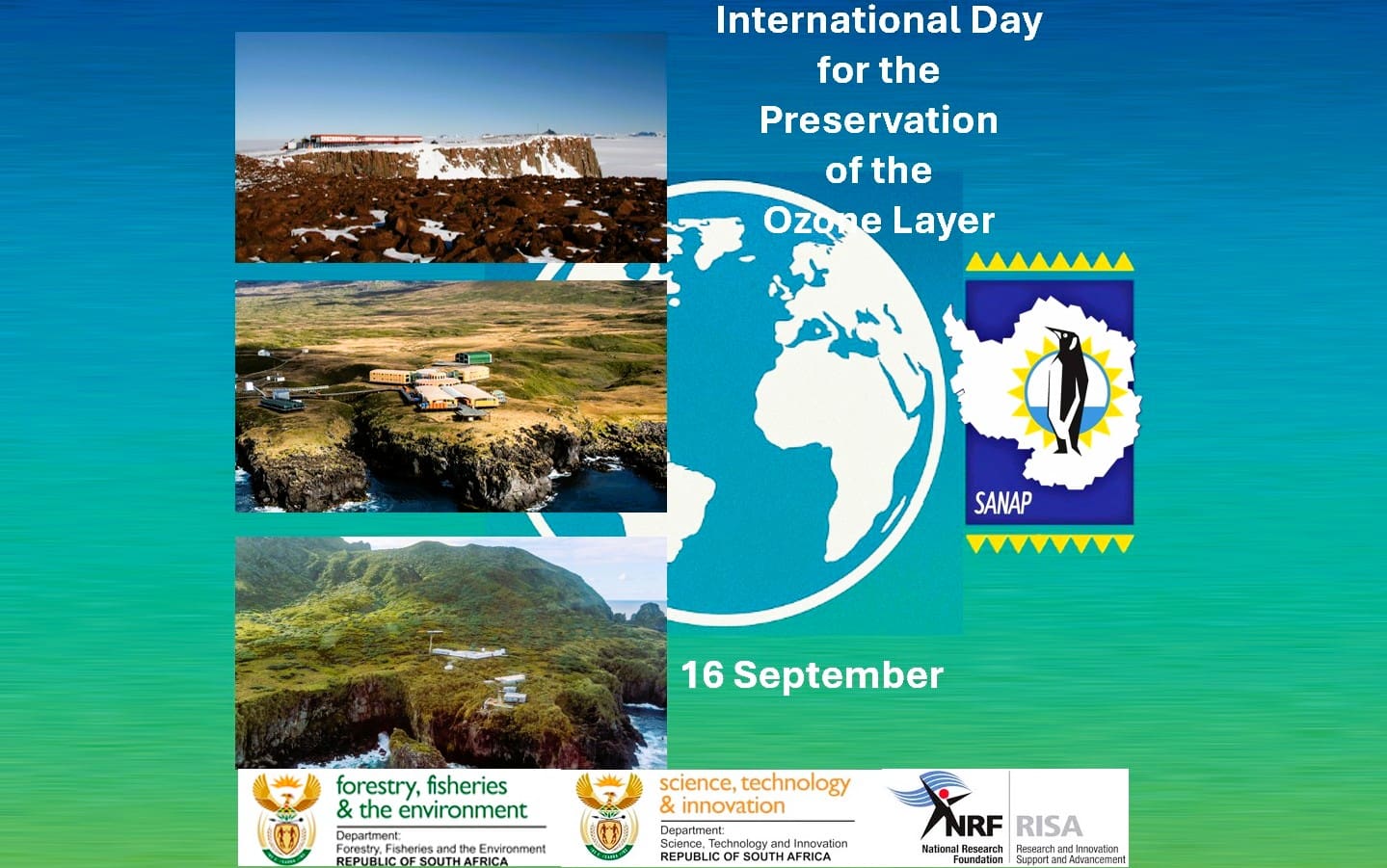 South Africa contributes directly to this global effort through the South African National Antarctic Programme (SANAP). At SANAE IV in Antarctica, as well as on Marion and Gough Islands, SANAP scientists conduct long-term atmospheric and environmental monitoring. This includes measuring stratospheric ozone levels, UV radiation, and atmospheric interactions—critical data that help track ozone recovery and understand climate–ozone linkages.
South Africa contributes directly to this global effort through the South African National Antarctic Programme (SANAP). At SANAE IV in Antarctica, as well as on Marion and Gough Islands, SANAP scientists conduct long-term atmospheric and environmental monitoring. This includes measuring stratospheric ozone levels, UV radiation, and atmospheric interactions—critical data that help track ozone recovery and understand climate–ozone linkages.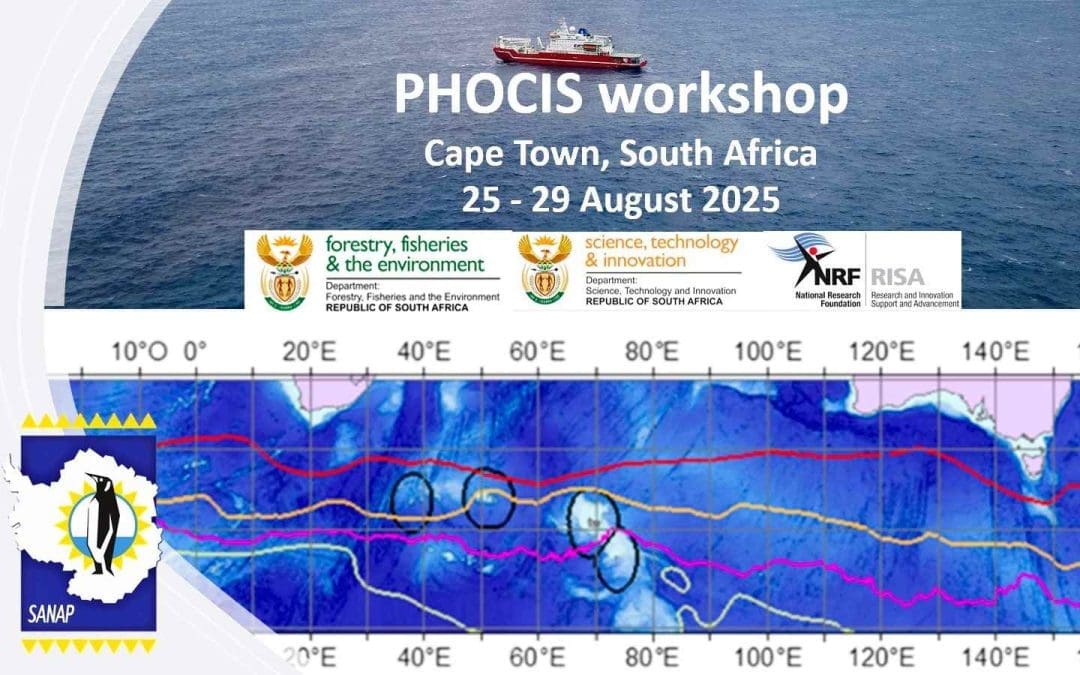

 The PHOCIS project, “Pelagic High Seas Ocean Ecoregionalisation of the Indian Subantarctic,” is
The PHOCIS project, “Pelagic High Seas Ocean Ecoregionalisation of the Indian Subantarctic,” is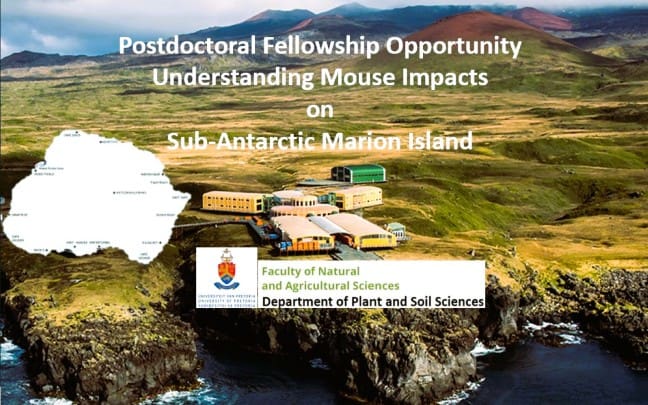
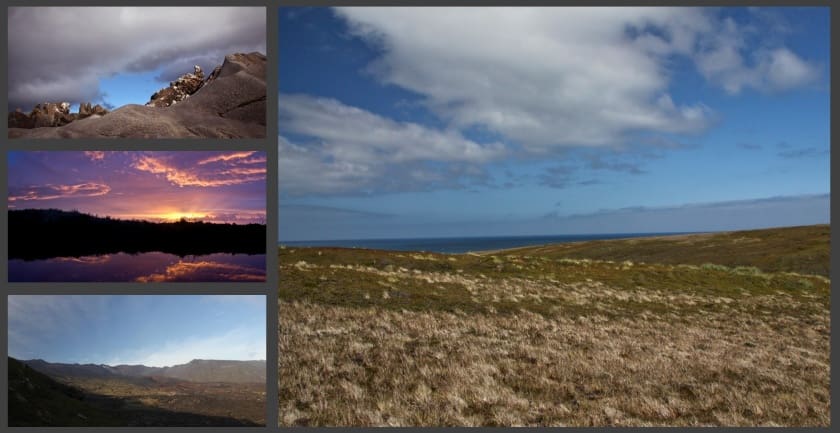 Postdoctoral Fellowship: Understanding Mouse Impacts on Sub-Antarctic Marion Island at Department of Plant and Soil Sciences, University of Pretoria. (image: Otto Whitehead)
Postdoctoral Fellowship: Understanding Mouse Impacts on Sub-Antarctic Marion Island at Department of Plant and Soil Sciences, University of Pretoria. (image: Otto Whitehead)



